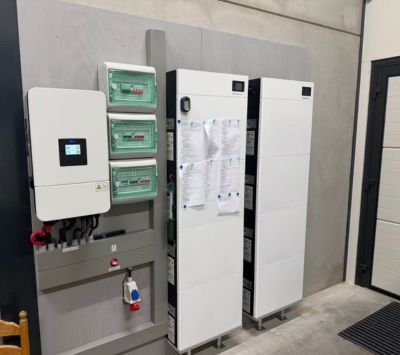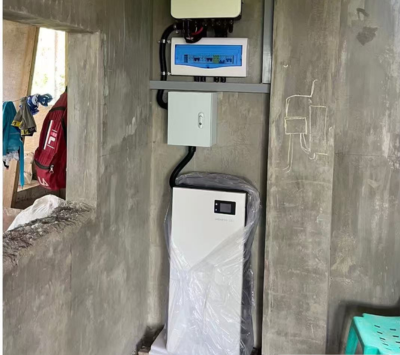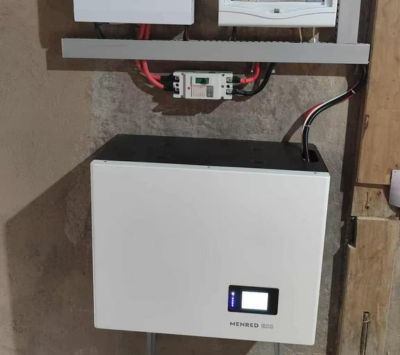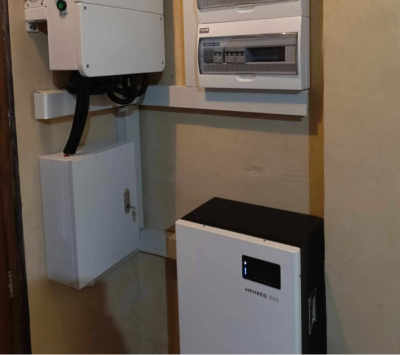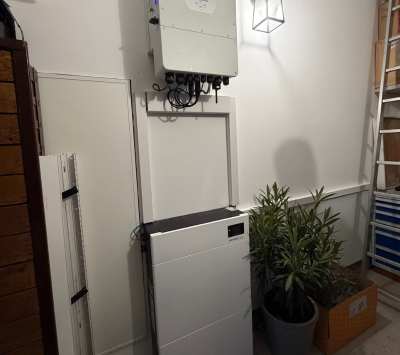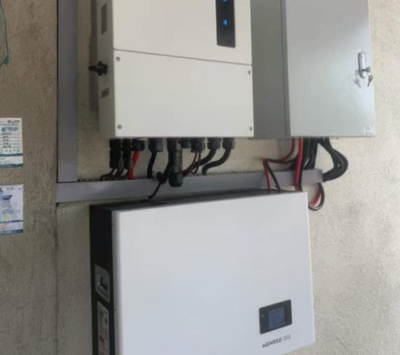Introduction
Solar panel batteries play a pivotal role in enhancing energy independence and lowering electricity bills, making them an essential investment for homeowners. Understanding the lifespan of these batteries is crucial for effective planning and budgeting. This article delves into the longevity of solar batteries, with a focus on the MENRED ESS LFP.6144.G4 model, and offers insights on optimizing their performance to ensure lasting efficiency.
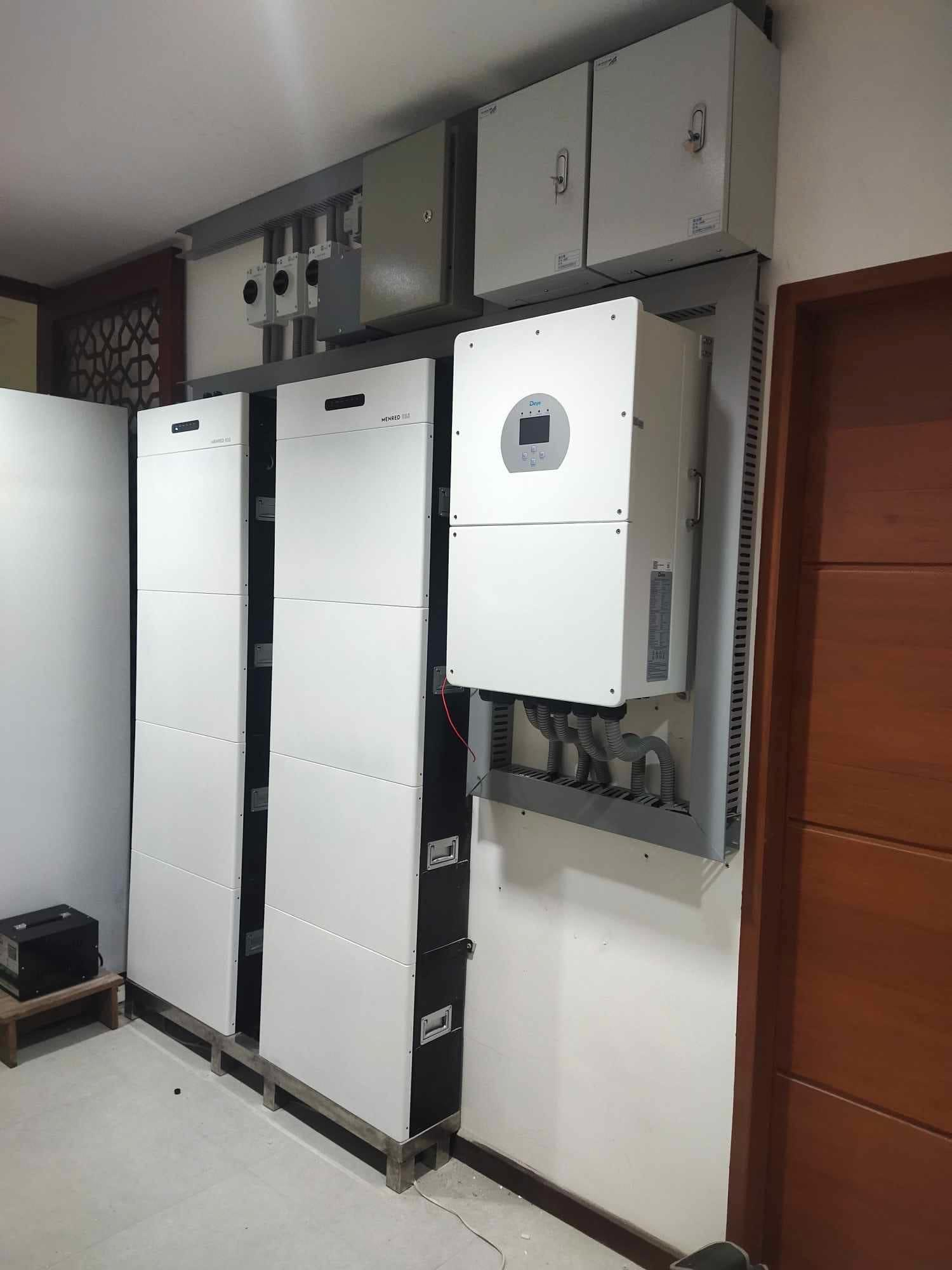 MENRED ESS and the LFP.6144.G4 Model
MENRED ESS and the LFP.6144.G4 Model
MENRED ESS is a leading brand in the energy storage market, known for its innovative solutions. One standout product is the LFP.6144.G4 model, which boasts impressive specifications:
- Capacity: 24.57 kWh
- Voltage Range: 44.8 VDC to 57.6 VDC
- Maximum Inverter Output: 15 kW
- Depth of Discharge: 95%
This model is designed for efficiency and reliability, ensuring users get the most out of their solar systems.
Lifespan of MENRED ESS Batteries
The lifespan of MENRED ESS batteries, particularly the LFP.6144.G4, typically ranges between 10 to 15 years, depending on usage and maintenance. With proper care, users can maximize their investment, benefiting from the battery’s long cycle life of up to 10,000 discharge cycles. Factors such as charging practices and environmental conditions significantly impact overall longevity.
Installation Success Story
A notable application of the LFP.6144.G4 was the installation of two units at a residential property in Southeast Asia. Paired with the DEYE SUN-12K-SG04LP3-EU-P inverter, rated at 12 kW, the setup created a robust home energy storage system. The customer expressed high satisfaction with the performance, highlighting the system’s reliability and ease of use, facilitated by the integrated Battery Management System (BMS) that allows monitoring via mobile app or computer.
Factors Affecting Battery Life
Several factors influence the longevity of solar batteries, including:
- Depth of Discharge (DoD): Regularly discharging a battery to its full capacity can shorten its lifespan.
- Temperature: Extreme temperatures can adversely affect battery performance and longevity.
- Quality of Battery Technology: Higher quality batteries generally last longer and perform better.
Advantages of Lithium Iron Phosphate (LFP) Batteries
The LFP.6144.G4 model utilizes Lithium Iron Phosphate (LFP) technology, which offers several advantages:
- Safety: LFP batteries are known for their thermal stability and reduced risk of fire.
- Longevity: They have a longer cycle life compared to other lithium-ion batteries, often exceeding 10,000 cycles.
- Environmental Benefits: LFP batteries are more environmentally friendly, as they do not contain cobalt or nickel.
Maintenance Tips for Extended Battery Life
To maximize the lifespan of your solar batteries, consider these maintenance tips:
- Regular Monitoring: Use the integrated BMS to check the battery’s health and performance regularly.
- Optimal Charging: Ensure the batteries are charged within the recommended voltage range to prevent damage.
- Keep Cool: Maintain an optimal temperature environment for the batteries to avoid overheating.
Future of Solar Battery Technology
As solar technology advances, the future looks promising for solar batteries. Innovations in materials and energy density are leading to more efficient and longer-lasting batteries. Companies like MENRED ESS are at the forefront, continuously improving their products to meet the growing demand for sustainable energy solutions.
Comparative Analysis of Battery Technologies
When choosing a solar battery, it’s essential to understand the differences between various technologies:
- Lead-Acid vs. Lithium-Ion: Lead-acid batteries are cheaper but have shorter lifespans compared to lithium-ion batteries like LFP.6144.G4.
- Maintenance Requirements: Lead-acid batteries require more maintenance than lithium options, which are generally maintenance-free.
- Efficiency: Lithium batteries provide higher efficiency and faster charging times than lead-acid batteries.
Conclusion
Choosing the right solar battery is essential for maximizing efficiency and ensuring a long-lasting energy solution. The MENRED ESS LFP.6144.G4 model stands out as a reliable choice for homeowners looking to invest in sustainable energy, with a lifespan that can exceed two decades when properly maintained.

